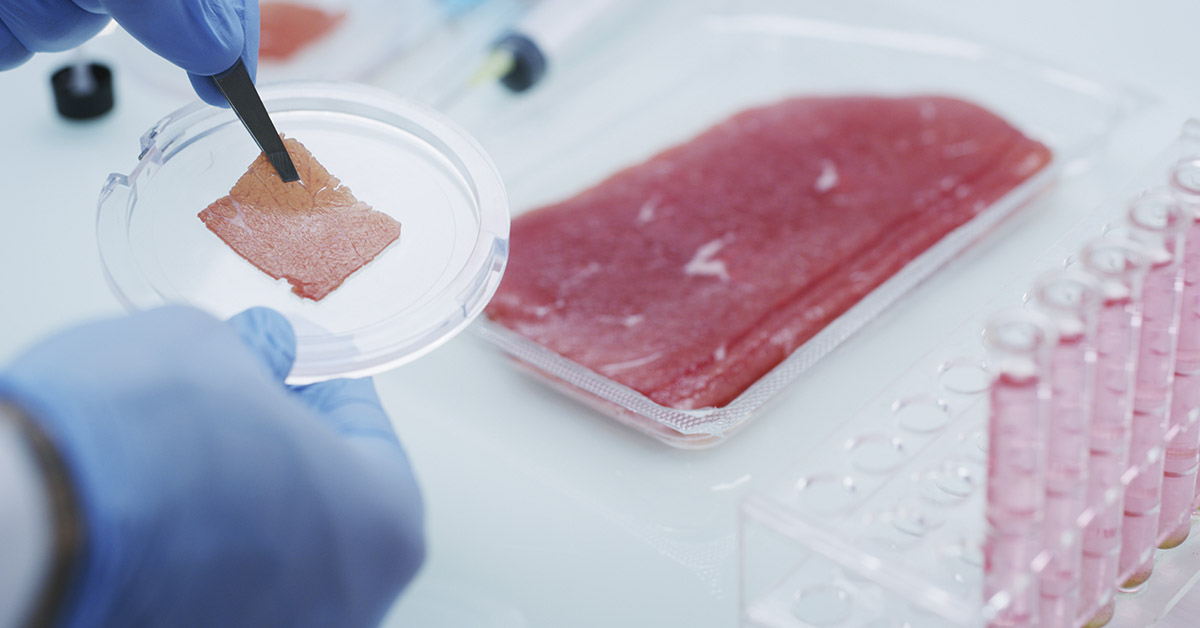Recent research raises concerns about the environmental impact of lab-grown meat, despite its reputation as a sustainable alternative to traditional livestock farming. A study conducted by researchers from the University of California, Davis (UCD), and the University of California, Holtville, highlights the potential drawbacks of current production methods for cultured meat.1 The findings suggest that lab-grown meat production could emit significantly more carbon dioxide per kilogram than conventional beef, depending on the techniques employed. This is especially problematic as these techniques were seen as more environmentally friendly alternatives to conventional meat production.2
The Complexities of Lab-Grown Meat Production
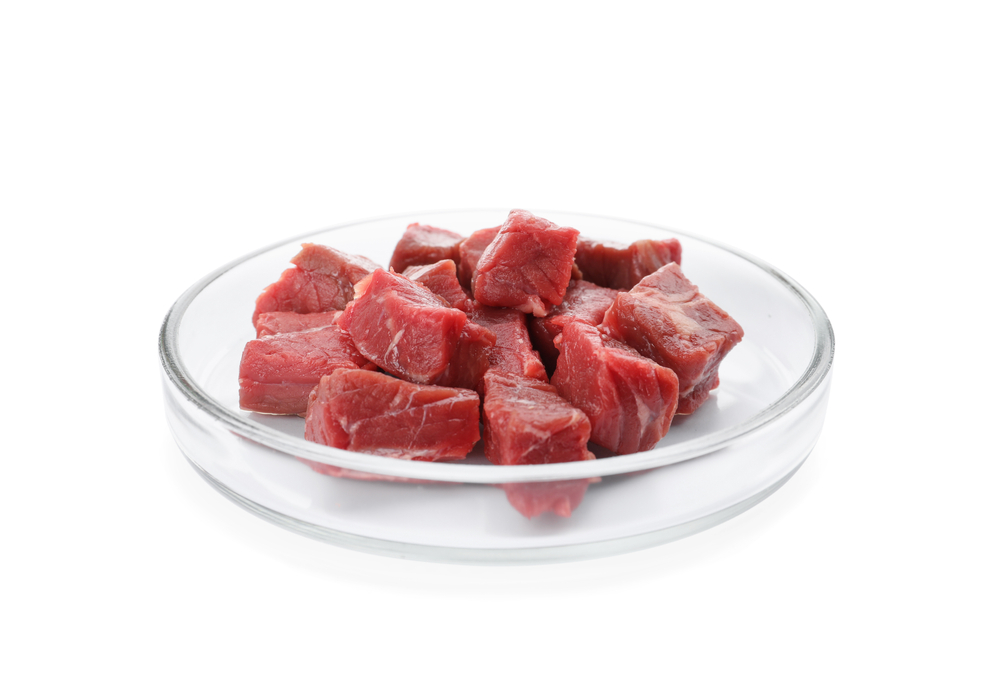
This method of production takes place by cultivating animal cells into edible tissues like muscle, fats, and connective tissues. While it requires less land, water, and antibiotics compared to conventional livestock farming, the production of cultured meat incurs environmental costs associated with the specific nutrients needed for its growth. Laboratories must extract growth factors from animal serums and cultivate crops for sugars and vitamins, adding to the overall environmental impact.
Purifying the broth ingredients to a high standard consumes substantial energy to prevent microbial contamination in the culture. UCD food scientist Derrick Risner emphasizes the importance of scaling up carefully to avoid detrimental environmental consequences: “[A]nimal cells won’t grow because bacteria will multiply faster”.1 Quick expansion without addressing the associated challenges could harm the environment.
Read More: 7 Vegan Foods High In Protein That Make Meat Obsolete
Balancing Environmental Impact and Technological Advancements
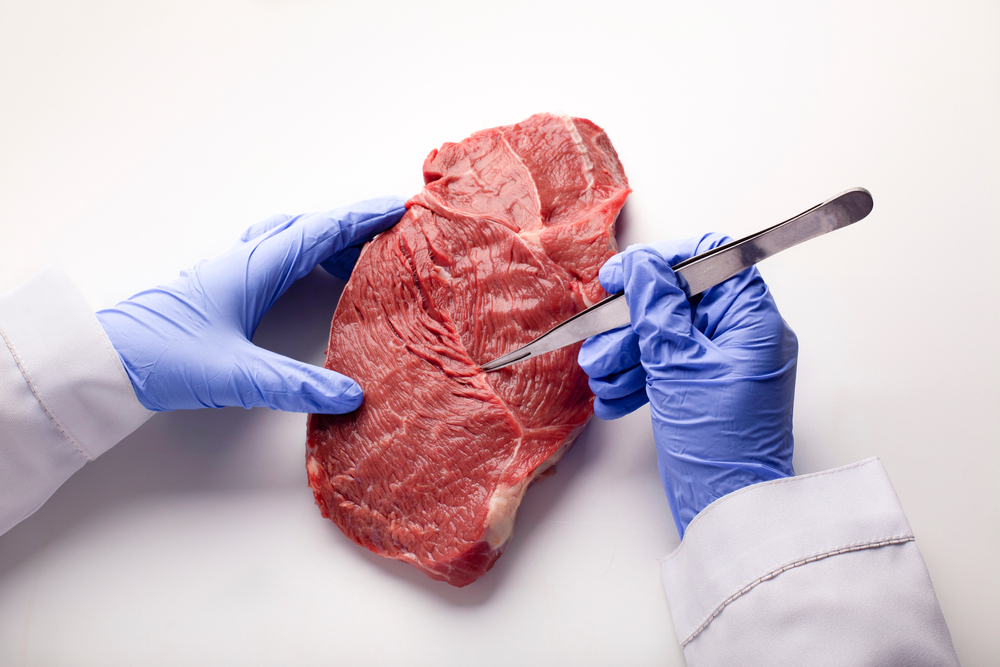
But there is some good news amidst the environmental concerns. By reducing the energy requirements through adopting food-grade standards for purification, greenhouse gas emissions from cultured meat production can be reduced to just over a quarter more than those of typical beef farming. In fact, under ideal circumstances, lab-grown meat could be up to 80 percent greener than raising cattle.
However, researchers caution that even the most efficient cattle-grown beef systems currently outperform the projected scenario of cultivating food-grade meat. Significant technical advancements are necessary to improve performance and decrease the cost of cell culture growth. Additionally, the calculations made only consider the energy costs of current lab-grown production methods and don’t account for the impact of constructing larger facilities for scaled-up production.
Reevaluating Priorities for a Sustainable Future
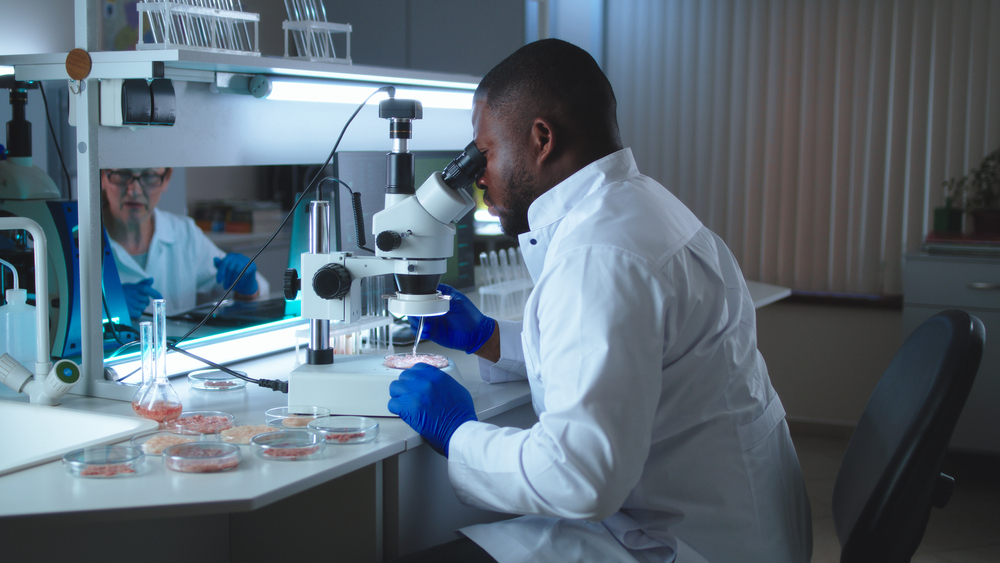
The argument currently is that investing in increasing livestock farm efficiency may be a more sensible approach to limiting the environmental footprint associated with meat production. Such measures could potentially provide greater and more immediate emissions reductions than the fledgling lab-grown meat industry.
The growth of the lab-grown meat industry must be carefully evaluated in light of its environmental impact. The fragile nature of animal cell cultures necessitates specialized and energy-intensive bioreactors, further contributing to the ecological consequences of this industry. Researchers stress the need to address key issues and solve technical challenges before scaling up production.2
Read More: Are Meats on “Clearance” Safe To Eat?
Exploring Plant-Based Alternatives

While lab-grown meat presents challenges, there is growing interest in plant-based alternatives as a more viable option for sustainable food production. Plant proteins have gained traction as a greener alternative, offering numerous benefits to both the environment and human health.
Plant-based proteins require significantly fewer resources to produce than both conventional livestock farming and lab-grown meat.3 The cultivation of crops for plant-based proteins utilizes less land, water, and energy. Furthermore, these proteins do not contribute to deforestation or emit substantial amounts of greenhouse gases, making them a more sustainable choice.
In recent years, plant-based meat alternatives have seen remarkable advancements in taste, texture, and nutritional value. Companies are developing innovative techniques to replicate the flavors and textures of animal-based products using plant ingredients. These plant-based meats can closely resemble traditional meat products, providing consumers with familiar environmentally friendly options.
By embracing plant-based alternatives, individuals can actively contribute to reducing the environmental impact of the food industry. Choosing plant-based proteins over traditional meat can help decrease greenhouse gas emissions, fight deforestation, and conserve natural resources. Additionally, a plant-based diet has been linked to various health benefits, including reduced risks of heart disease, obesity, and certain cancers.4
Bottom Line
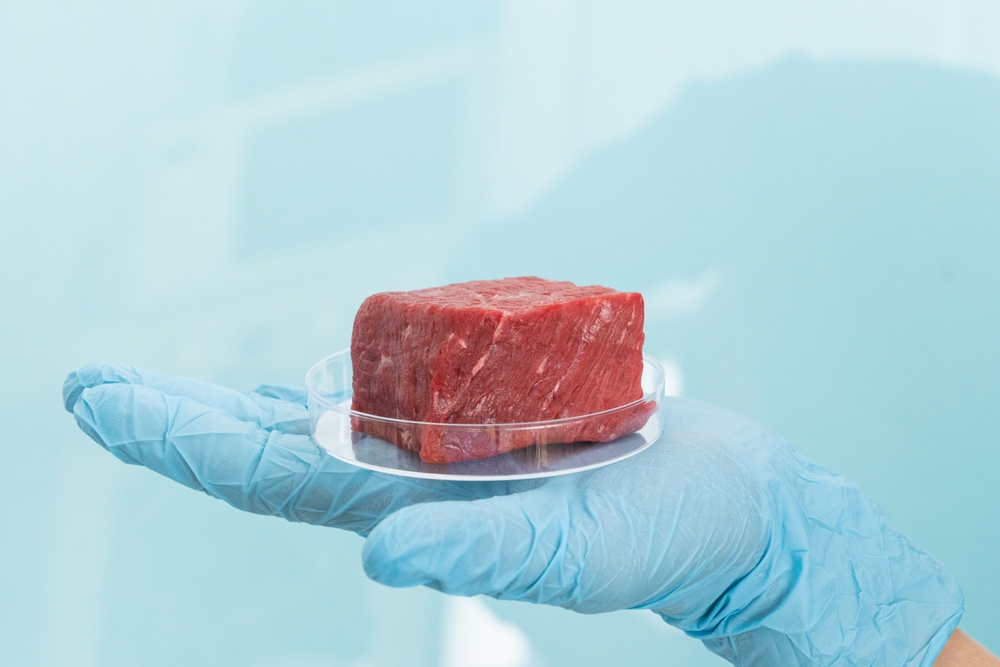
As the global demand for meat rises, exploring and supporting sustainable solutions is crucial. Plant-based proteins offer a viable path forward, allowing individuals to make conscious choices that align with their values and contribute to a more sustainable and compassionate world.
While lab-grown meat presents potential benefits, addressing the current environmental concerns and striving for technical advancements is essential. At the same time, embracing plant-based alternatives offers a practical and sustainable solution to the challenges posed by conventional livestock farming. By choosing plant-based proteins, individuals can contribute to a greener future while enjoying delicious and nutritious alternatives to traditional meat products.
Read More: This Meat Trade Is Killing Horses By the Thousands, and No One Is talking About It
Sources
- “Lab-Grown Meat Has a Big Problem Very Few People Know About.” Science Alert. Tessa Koumoundouros. June 2, 2022.
- “Environmental impacts of cultured meat: A cradle-to-gate life cycle assessment.” Bio Rxiv. Derrick Risner, et al. April 21, 2023.
- “Plant-based meat for a growing world.” GFI
- “5 benefits of a plant-based diet.” M Anderson. Heather Anderson. November 2019.
